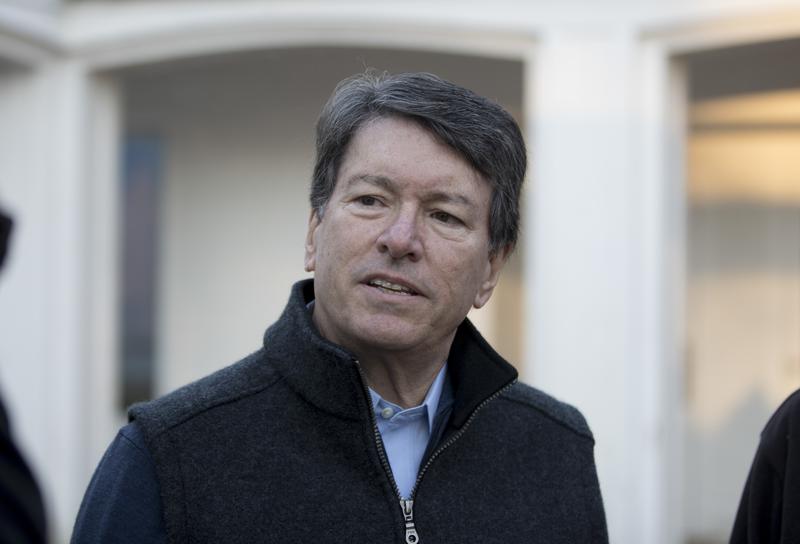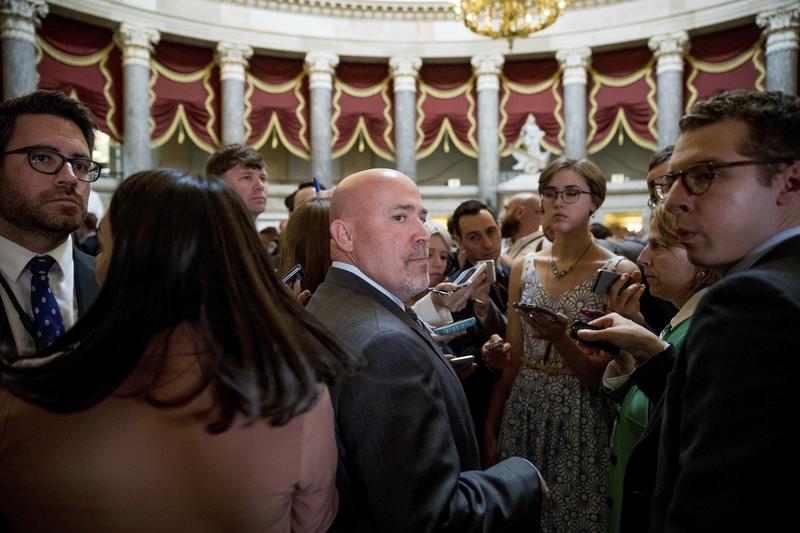
On the one hand, New Jersey and especially New York have embraced Obamacare, and that could set them up for a substantial fall under Trumpcare.
On the other hand, both states had many health insurance protections long before the Affordable Care Act, which could insulate them from change.
There are many uncertainties as to how things will play out, but here are four ways New York could be affected, including two that would also affect New Jersey:
Pre-Existing Conditions: Under the Republican plan, states could let insurers charge people more if they had preexisting conditions such as diabetes or cancer or depression.
But not, legally, in New York and New Jersey.
Both states outlawed so-called "medical underwriting" decades before Obamacare did so nationally. Even so, people here with preexisting conditions could still end up paying more, indirectly, due to distortions in the insurance market. Bill Hammond, from the right-leaning Empire Center, says the new healthcare bill largely throws out the carrots and sticks that got people into the Obamacare health exchanges: the penalties for going uninsured and the healthcare subsidies (which will continue to exist but in very truncated form).
Hammond says with fewer incentives attracting younger healthier people to the insurance pool, it's not difficult to imagine a scenario where mainly the sicker, more desperate individuals would opt in.
"You risk going back to what's called a 'death spiral' of higher premiums leading healthy people to drop coverage leading to premiums going up," Hammond said.
That was the situation in New York and New Jersey before Obamacare, and it's one of the main reasons why rates here have come down in recent years — while they've gone UP in states where price discrimination was previously legal. Republicans say the solution is to move people with preexisting conditions into "high risk pools." The latest bill would set aside money just to cover those people — but Elisabeth Benjamin, from the Community Service Society of New York, say the funding would be inadequate.
"They're putting up $8 billion," Benjamin said. "Well, New York alone could go through several billion dollars."
Benjamin was referring to the latest amendment to the American Health Care Act, crafted by Rep. Fred Upton (R-MI), which added more money to high-risk pools. The total number is closer to $125 billion, most of it over 10 years. Still, many critics are skeptical that will meet the needs of a population that is growing older and sicker.
"What you're talking about is rationing healthcare," Benjamin said.
Medicaid: About 6.5 million New Yorkers and 1.8 million New Jersey residents are on Medicaid. That's a 13 percent increase in New York since Obamacare took effect — and an almost 40 percent jump in the Garden State. Trump Care would phase out federal funding for Medicaid expansion and reduce income eligibility standards. Both states stand to lose billions of dollars annually. Further, New York is one of two states (with Minnesota) with a Medicaid-like "Essential Plan" on their individual health insurance exchanges. Hammond says the federal government picks up about 80 percent of the cost for the 635,000 people on these plans, which would disappear under Trumpcare. About one-third of those participants would switch to Medicaid, with a $1 billion price tag for the state.
Tax Shift: A New York-specific amendment by House Republicans John Faso (R-Kinderhook) and Chris Collins (R-Buffalo) would shift rural and suburban counties' share of Medicaid costs to the state. The move could be popular with many residents of Long Island and upstate New York because it could lower their property taxes. But the amendment would add another $2.3 billion burden to Governor Andrew Cuomo, the legislature and taxpayers. As with the decrease in federal funding, the state would have the same few options: raise income taxes, reduce benefits, trim the number of people on Medicaid, or some combination of all three.
Abortion: New York is one of two states (along with California) that require all health insurers to cover abortion. The Republican bill, however, would disqualify health exchange participants from receiving tax credits to purchase plans with abortion coverage. Without tax credits, health exchange plans would be too expensive for most people, because insurance is too expensive. Currently one New York plan — Catholic insurer Fidelis — excludes abortion coverage, though participants could be covered through a workaround. But it's not clear how any other carrier could remain on the health exchange, comply with state law, and provide tax credits under Trumpcare.

